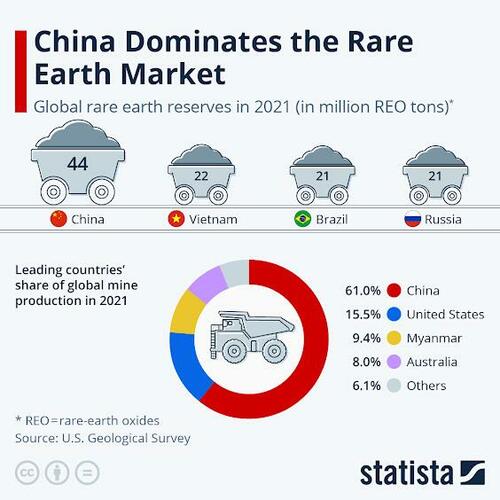ANOTHER REASON TO GO RENEWABLE
North Sea Oil Production Could Fall By 80% By 2030
- Offshore companies reduce their spending in the North Sea, leading to a decrease in oil production.
- Without additional funding, the UK may become reliant on foreign fossil fuels to meet its energy demands.
- The introduction of a windfall tax has been blamed for the lack of interest in British waters.
According to the industry body Offshore Energies UK, investments in the North Sea have dipped significantly. This could result in much lower oil production by the end of the decade unless the government can attract greater investment to the sector. While environmental groups are praising the drop in funding, energy experts are concerned about what this means for the U.K.’s energy security, with some suggesting it may have to rely on foreign fossil fuels to meet its needs.
Offshore Energies found that 90 percent of offshore firms had reduced their spending in the North Sea, amounting to billions in total. It determined that the lower level of investment could result in a decrease in production of 80 percent by 2030, equivalent to 500 million fewer barrels of oil if the government cannot attract more funding to the waters. This could lead the U.K. to rely on imports of oil and natural gas.
The introduction of a windfall tax has been blamed for the lack of interest in British waters. The government introduced the tax last year as energy companies saw record profits as oil and gas prices rose sharply. This was largely in response to supply shortages and sanctions on Russian gas. Headline tax rates for companies rose from 40 percent to 75 percent, although several companies still posted profits. BP announced it had seen record profits of $22.7 billion in 2022. However, many companies believe it could be cheaper to invest in oil and gas operations in countries where taxes are significantly lower. Others have shifted investments to new ‘low-carbon’ oil operations, in a move away from traditional oil-producing regions. Other reasons for the reduction in investment include high levels of inflation, expensive material costs, and a lack of access to finance.
Several environmental groups are suggesting the investments bound for the North Sea could be better used in renewable energy projects. This would both help the U.K. to ensure its energy security as well as accelerate the green transition by cutting fossil fuel use and carbon emissions. However, several industry experts see fossil fuels as playing a huge part in the U.K.’s mid-term energy security. Ross Dornan from Offshore Energies stated, “By the mid-2030s, according to the Climate Change Committee, oil and gas will still provide half our energy needs.” Therefore, "We should be aiming to get as much as possible of that energy from our own resources - meaning the North Sea,” Dornan explained. Dornan highlighted the need for the U.K. to attract investment in the sector or become reliant on other countries for its oil supply.
Earlier in the year, Amjad Bseisu, CEO of the North Sea company EnQuest, stated that the U.K. is fiscally unstable, which has led the government to indulge in “short-termism” by introducing windfall taxes to the detriment of its oil and gas industry. In response to the rise in taxes, Bseisu said that Asia had become the company’s biggest growth area, instead of the U.K. or Europe. Although the windfall tax responds to 2022’s rising consumer energy bills and high oil and gas profits, it is expected to remain at the increased rate until 2028, which could deter energy companies from investing further in British oil and gas operations.
Bseisu and other industry leaders believe it is vital for the U.K. to make the North Sea attractive to investors and maintain its oil and gas activities to bring in the revenues needed to fund the green transition. Without money from oil and gas, the government may not have the funds it needs to accelerate the rollout of renewable energy and related technologies. Further, it may need to spend more on oil and gas imports if its domestic production falls short of the country’s rising energy demand.
Other countries, such as the U.S., have avoided introducing a windfall tax, having instead concentrated on boosting national production to ensure energy security. Revenues from the oil industry are expected to support the rollout of President Biden’s ambitious 2022 climate policy, the Inflation Reduction Act. The joint aim of accelerating the development of the U.S.’s green energy capacity while also decarbonising through carbon capture and storage technologies and other schemes will help the country to continue producing oil and gas as it speeds up its green transition. However, this too has been criticised, as many environmental groups believe Biden is offering too much support for oil and gas in contradiction to his climate pledges.
Countries around the globe appear to be finding it hard to manage their energy security, needing to decrease consumer costs, move away from oil and gas, and increase their green energy production. The U.K.’s windfall tax has been blamed for deterring greater investment in North Sea oil and gas operations, which could negatively affect the country’s energy security. But at the same time, environmental organisations are suggesting the money could be better used in renewable energy projects. And other approaches, such as U.S. President Biden’s backing of domestic fossil fuel production, have received similar criticism. So, it seems that striking the right balance between mid-term fossil fuel production to ensure energy security and a long-term green transition is more complex than some originally thought.
By Felicity Bradstock for Oilprice.com

